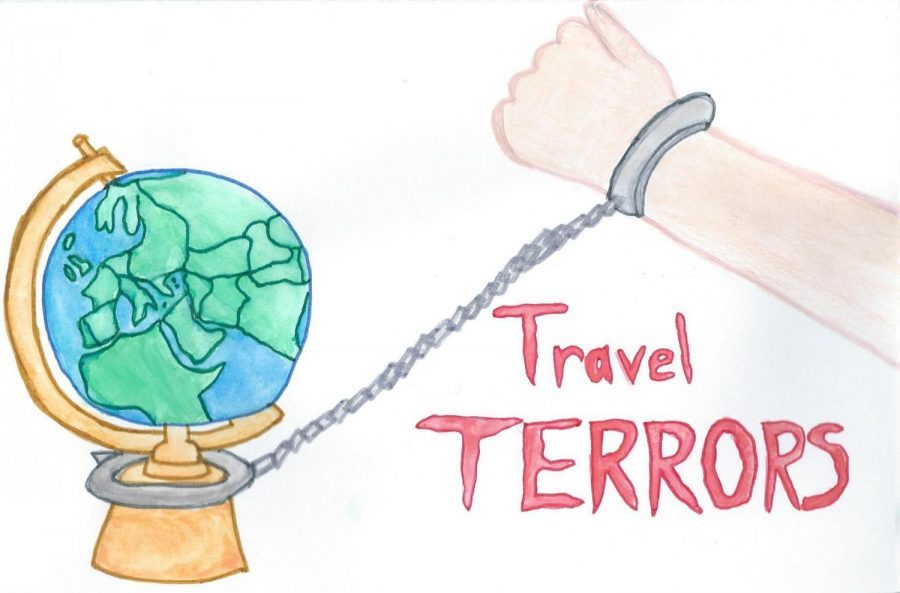Terroristic anxiety
August 22, 2017
A squeal. A scream. A few tears of joy. When I heard I was going to Europe this summer I was ecstatic. But as I began planning and told my other relatives and friends, their reactions weren’t as enthusiastic.
Questions of “Are you sure you should go?” and “Make sure you avoid all the landmarks!” replaced “When are you leaving?” and “Send me a postcard!” Strict rules of how to dress unlike an American and a billion restrictions from the TSA policed my packing list. A looming terror overshadowed the excitement I felt leading up to the trip, evident in my relatives as they said tearful goodbyes and begged us to stay away from the crowds.
Were my family and friends worried our plane would crash in a storm? That we’d get lost in a country where we didn’t know the language? Maybe drown in the Seine? No. They were much more worried we’d be victims of a mass shooting, bombing or televised beheading.
Terrorism. The frightening and relatively new threat that affects people’s attitude toward travel more than anything else.
“While numerous natural and human-caused disasters can significantly impact the flow of tourists,” an article from ” Effects of Terrorism on the Travel and Tourism Industry” by the International Journal of Religious Tourism and Pilgrimage said, “the threat of danger that accompanies terrorism tends to intimidate potential tourists more severely.”
Major cities such as London, Paris and Rome attract nearly 50 million tourists each year, including my dad and I this summer, but large and concentrated cities tend to attract more than their fair share of terrorist attacks. This fact made itself painfully accurate on my trip, like the modest bouquets of flowers adorning the London Tower Bridge where an attack happened just eight days before we arrived. Paris felt the effects of terrorism on the tourism industry after their 2015 attack in November when the number of visitors to the city dropped by 30%.
Of all of the variables that affect someone’s travel choices, terrorism should not be one. When tourists avoid major cities, it sends a deadly message that terrorism works. Instead, it’s up to everyone to travel freely, while taking steps to be safe and aware of course, without letting terrorism deter them. To think that someone’s travel dreams might be overlooked because of a terror attack is heartbreaking, and allows terrorists to control the world through the tourism industry.
All in all, this fear is overstated, and there are much greater worries a traveler should have then terrorism. In fact, tourists are 81 times more likely to die in the car trip to the airport than by a terrorist. Using terror as an excuse against travel is impractical. Traveling freely without hesitation is the only way to defeat this threat and finally overcome travel terrors.
















Carolyn Ford • Aug 22, 2017 at 9:19 pm
This was an excellent article, Molly. I’m so happy you got to experience this trip with your Dad. It is something you’ll treasure and remember the rest of your life. I’m sure he will too. Thank you for sharing?